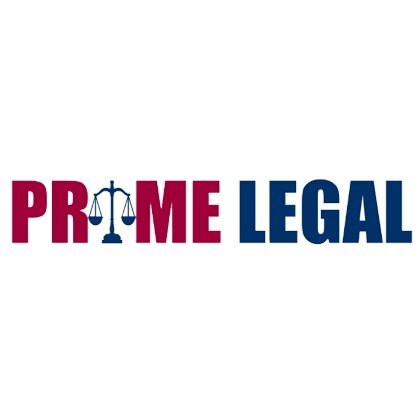Best Art & Cultural Property Law Lawyers in Nepal
Share your needs with us, get contacted by law firms.
Free. Takes 2 min.
Or refine your search by selecting a city:
List of the best lawyers in Nepal
About Art & Cultural Property Law in Nepal
Art & Cultural Property Law in Nepal is a specialized area of law that governs the protection, management, and preservation of cultural heritage and art objects within the country. Nepal, with its rich history and diverse cultural heritage, has a significant stake in safeguarding its art and cultural properties. The laws in this domain are designed to protect objects of historical, artistic, or archaeological significance, including monuments, fine art, artifacts, and intangible heritage like dance and folklore. Enforcement and development of these laws are crucial, as they help guard against illegal trafficking, destruction, and unauthorized commercialization of cultural assets.
Why You May Need a Lawyer
There are several scenarios in which individuals or entities may require legal assistance in the field of Art & Cultural Property Law in Nepal:
- Acquiring or selling art or cultural objects and needing to ensure all transactions are legally compliant.
- Handling cases of alleged theft or unauthorized reproduction of cultural assets.
- Engaging in international loans or exhibitions, where legal counsel can help navigate complex cross-border arrangements.
- Assisting with the repatriation of cultural property that has been illicitly taken or exported.
- Creating or enforcing contracts related to cultural heritage management or museum administration.
Local Laws Overview
Nepal's legal framework concerning art and cultural property is influenced by both national and international statutes:
- The Ancient Monument Preservation Act 1956: This legislation is fundamental in the protection of ancient monuments and archaeological sites in Nepal.
- The Copyright Act 2002: Important for protecting creators' rights over their artistic works, ensuring no unauthorized use or reproduction.
- The Local Governance Act 2017: Provides local governments a role in managing and preserving cultural landmarks within their jurisdiction.
- International Conventions: Nepal is a signatory to several international treaties including UNESCO conventions, which influence domestic cultural property laws.
Frequently Asked Questions
What is cultural property according to Nepalese law?
Cultural property in Nepal encompasses tangible and intangible cultural assets, including historical monuments, artworks, literature, traditional crafts, and folklore that hold cultural, historical, or archaeological significance.
What should I do if I inherit a cultural artifact?
If you inherit a cultural artifact, it's important to verify its legal status and ensure that it was not acquired or exported unlawfully. Consulting a lawyer can help you comply with local laws.
Can I export an ancient artifact from Nepal?
Exporting ancient artifacts without proper approval from government authorities is illegal and subject to severe penalties. Always seek guidance to understand and comply with legal requirements.
Are traditional dances or legends protected by law?
Yes, traditional dances and folklore are considered intangible cultural heritage and are protected under Nepalese law and international agreements, ensuring their preservation and proper attribution.
How can a lawyer assist me with art transactions?
A lawyer can ensure the transaction complies with relevant laws, draft agreements, and conduct due diligence to verify the provenance and authenticity of the art.
What role do local governments play in cultural property management?
Local governments are empowered to manage, protect, and preserve cultural heritage within their areas, implementing policies aligned with national standards.
How does Nepal address art theft?
Nepal has stringent laws against the theft and illicit trafficking of cultural property, with significant penalties for offenders. International cooperation is often sought for recovery.
How can NGOs contribute to cultural preservation?
Non-governmental organizations can support cultural preservation through advocacy, awareness programs, funding for restoration projects, and policy development assistance.
What is the process for reporting damaged heritage sites?
You can report damage to heritage sites to local authorities, the Department of Archaeology, or through community-based programs for immediate assessment and action.
What are the penalties for non-compliance with cultural laws?
Penalties can range from fines to imprisonment, depending on the severity and nature of the offense, such as illegal export or destruction of heritage property.
Additional Resources
Here are some resources and organizations that might be helpful for legal advice in the field of Art & Cultural Property Law in Nepal:
- The Department of Archaeology - for permits and heritage management.
- UNESCO Office in Kathmandu - for international guidelines and cooperation.
- National Archives of Nepal - for historical records and legal documents.
- Law firms specializing in cultural property - for expert legal advice.
Next Steps
If you find yourself in need of legal assistance in Art & Cultural Property Law in Nepal, the recommended actions are as follows:
- Identify the specific legal issue or question you need to address.
- Consider consulting a local lawyer or law firm specializing in cultural property for professional guidance.
- Document all relevant materials and communications for the case or transaction.
- Reach out to governmental bodies like the Department of Archaeology for necessary permits and information.
- Stay informed about both national and international laws that might impact your situation.
Lawzana helps you find the best lawyers and law firms in Nepal through a curated and pre-screened list of qualified legal professionals. Our platform offers rankings and detailed profiles of attorneys and law firms, allowing you to compare based on practice areas, including Art & Cultural Property Law, experience, and client feedback.
Each profile includes a description of the firm's areas of practice, client reviews, team members and partners, year of establishment, spoken languages, office locations, contact information, social media presence, and any published articles or resources. Most firms on our platform speak English and are experienced in both local and international legal matters.
Get a quote from top-rated law firms in Nepal — quickly, securely, and without unnecessary hassle.
Disclaimer:
The information provided on this page is for general informational purposes only and does not constitute legal advice. While we strive to ensure the accuracy and relevance of the content, legal information may change over time, and interpretations of the law can vary. You should always consult with a qualified legal professional for advice specific to your situation.
We disclaim all liability for actions taken or not taken based on the content of this page. If you believe any information is incorrect or outdated, please contact us, and we will review and update it where appropriate.
Browse art & cultural property law law firms by city in Nepal
Refine your search by selecting a city.

















